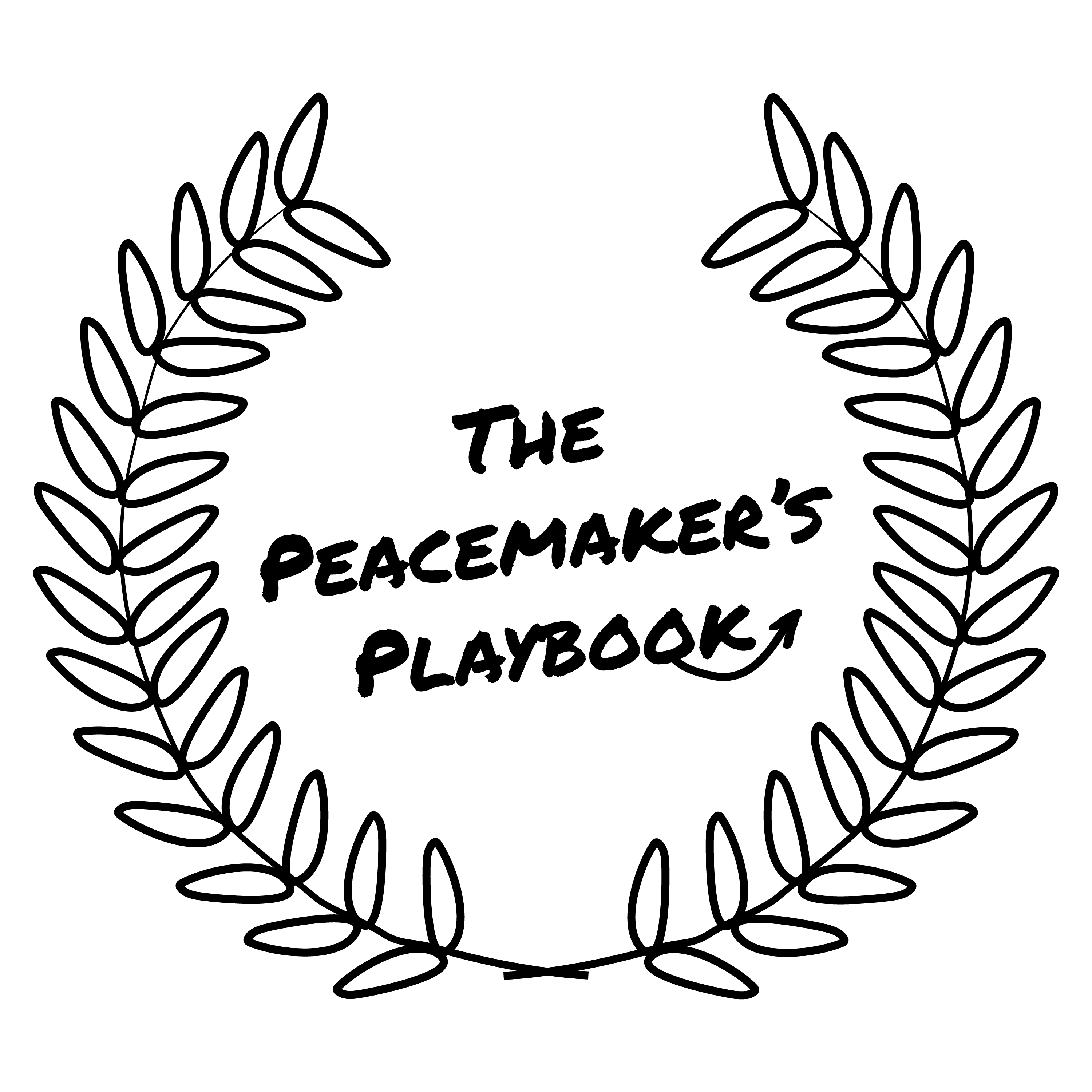Transcript lightly edited for clarity.
Josh: Hi there! I'm Josh, and joining me is my favorite partner in life and assistant in this little project, Kaleene. Together, we're navigating a divided world, learning how to be better neighbors—to others and to each other—and sharing what we learn with you here, at The Peacemaker's Playbook.
Last time we talked about the importance of showing genuine curiosity, asking more questions to see the world through our opponents’ eyes. Today, we're exploring why we should focus much - maybe even most - of our energy close by, turning toward our local communities and neighbors, even as we face the pull of isolation.
Kaleene: Have you ever heard of book The Night Gardener by The Fan Brothers? It's this beautiful children's story we’ve been reading to our three-year-old about a mysterious gardener who sneaks out at night to transform ordinary trees into extraordinary topiaries—animals and figures carved from leaves and branches. By morning, the whole neighborhood is gathered outside, marveling at the new creations. Each night brings a new transformation, and soon, the community is buzzing with curiosity, wonder, and shared joy. The gardener is anonymous to all but one person, but that's not the point. The magic is in the way his work brings neighbors together—to connect, to celebrate, and to simply be present with one another.
Josh: In a time when politics has become increasingly nationalized, it's easy to feel like the stuff the President is focused on and that members of Congress and the people on the big cable news programs are fighting about is the primary level at which we should all be trying to make a difference. After all, these are the big issues! So we spend hours consuming news and opinions and expressing our views on the internet about the latest Supreme Court decision or the latest debate over the filibuster. Instead, consider spending most of your 'activist' time and energy serving the humans right around you - the people just outside your front door or around the corner or, if you’re rural, within a couple miles. The closer the better. And, since real community goes both ways, ask for or accept their help every now and then too.
But it’s not just about aiding one another. Participate in the joyful traditions that already exist in your neighborhood, too, or help create new ones. It could be as simple as organizing a block party, hanging holiday lights, or just being the person who always waves hello.
Kaleene: Why does this matter so much? Why is it so important to give and receive help from our actual neighbors and celebrate together as a community?
Josh: In The 7 Habits of Highly Effective People, Stephen Covey said that if we focus on the stuff we can’t really influence much but that we are still concerned about, like the weather, the economy…political institutions at the national level, our concerns are likely to just keep growing but our actual influence will probably wither. He said that if instead we focus our attention and energy on the stuff we can influence, not only can we make a difference, but our influence is likely to grow. And guess what? We can influence our neighborhood communities. When we focus on things beyond our control, it can feel overwhelming, like shouting into the void. But helping a neighbor shovel their driveway or bringing cookies to the new family down the street? That’s real, tangible impact.
And while most of us as individuals don’t have much influence over political institutions at the national level, over time our neighborhood community can. When we strengthen bonds with our neighbors, we create trust and collaboration. That trust encourages people to engage with local leaders, making governance there more responsive and effective, and back and forth. These kinds of improvements to society in one geographical area are inspiring and contagious, rippling outward and upward, igniting similar virtuous cycles in society elsewhere and, eventually, at the state and national level.
Kaleene: So as individuals and as families, we should focus close by, because it’s how we’ll make the biggest difference. Is that it, though? Is meeting our neighbors and sharing life together just a means to an end?
Josh: In The Art of Neighboring, authors Jay Pathak and Dave Runyon point out that, while so many of us don’t even know the names of the people in the handful of homes right around us, if we were to get to know and love and have fun with our literal neighbors, it would offer "us a different kind of life. It’s a way of living that makes sense and brings peace to people’s souls.”
In other words, aiming most of our attention and energy at the city block or land within a mile or so of us - and the people who are there - is what we were made for. It’s fun! We long for deep, fulfilling relationships. Well, as blogger Mr. Money Mustache points out:
Great friends are hiding among your neighbors.
Go flush ‘em out.
Kaleene: So we should take the lead in our neighborhoods, meeting people, facilitating service in all directions, and fostering a sense of belonging for everyone, because it works and is fulfilling.
Josh: Yes! For example, I know we've also come to love Marathon Sunday here in Chicago. There's something powerful about the way it brings people out of their homes—everyone celebrating excellence, everyone for everyone else. It’s joyous! And it’s a reminder to all, for one day at least, that we’re in this together and that this is how we do things around here.
Kaleene: I'll share a personal aha moment too, and maybe this will spark something for folks. I saw a video of someone cooking for their neighbors who'd just had a baby—and it wasn't because they were particularly close. She’d just had a realization: "Wait, I am the village."
So, some practical ideas: make your porch or front yard welcoming. Share garden veggies or baked goods. Offer to help with yard work or errands. Ask for help when you need it. Join or start a neighborhood group chat. Subscribe to your local paper.
Josh: We could do a whole episode about that one. It’s important to note that things can go in the opposite direction, too. Meaning, disconnectedness and dysfunctional habits, rituals, customs in one area or at one level can be ‘caught’ by other places or by other levels and can poison the political process. Perhaps our national politics are so toxic right now, in part, because so many of us are holed up in our homes, strangers to, and giving side-eye right back at, even the people just across the street. Let’s reverse the trend!
As with all the practices Kaleene and I are learning about and sharing on this podcast, this goes for us too. We’re mindful of the fact that, here we are, preaching local engagement while spending time and energy producing a podcast aimed at easing tribal tensions nationally.
Join us next time for The Peacemaker’s Playbook!
Fan, Terry, and Eric Fan. The Night Gardener. Simon & Schuster Books for Young Readers, 2016.
American Academy of Arts and Sciences. (2024b). Habits of Heart and Mind: How to Fortify Civic Culture.
Miller, Donald. A Million Miles in a Thousand Years: How I Learned to Live a Better Story. Thomas Nelson, 2009.
Covey, S. R. The Seven Habits of Highly Effective People: Restoring the Character Ethic. Macmillan Reference USA, 1997.
Pathak, J., & Runyon, D. The Art of Neighboring: Building Genuine Relationships Right Outside your Door. Baker Books, 2012.
Get Rich With: Your Own Urban Tribe. (2022, July 11). Mr. Money Mustache. https://www.mrmoneymustache.com/2015/08/19/urbantribe/
And a special thank you to our interns, Claude and ChatGPT, for serving as our brainstorming partners and for creating a draft outline and draft script for us. Some of ChatGPT's suggested wording made it into our final script.




Member discussion: